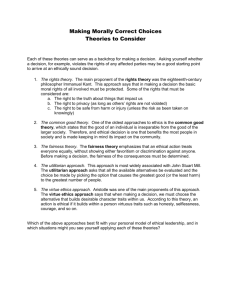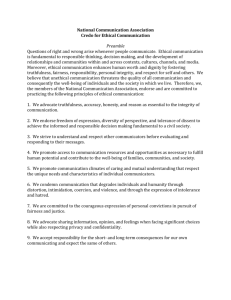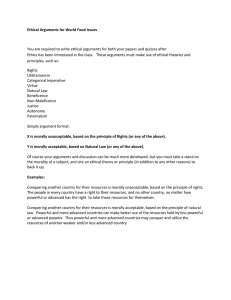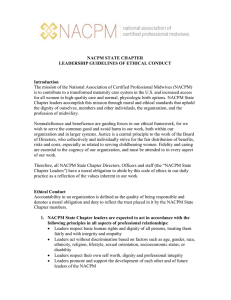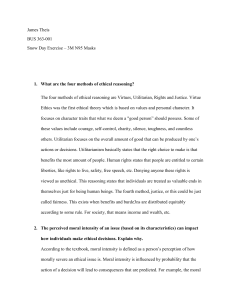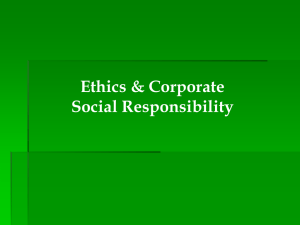MORAL PRINCIPLES (ETHICAL APPROACHES)
advertisement
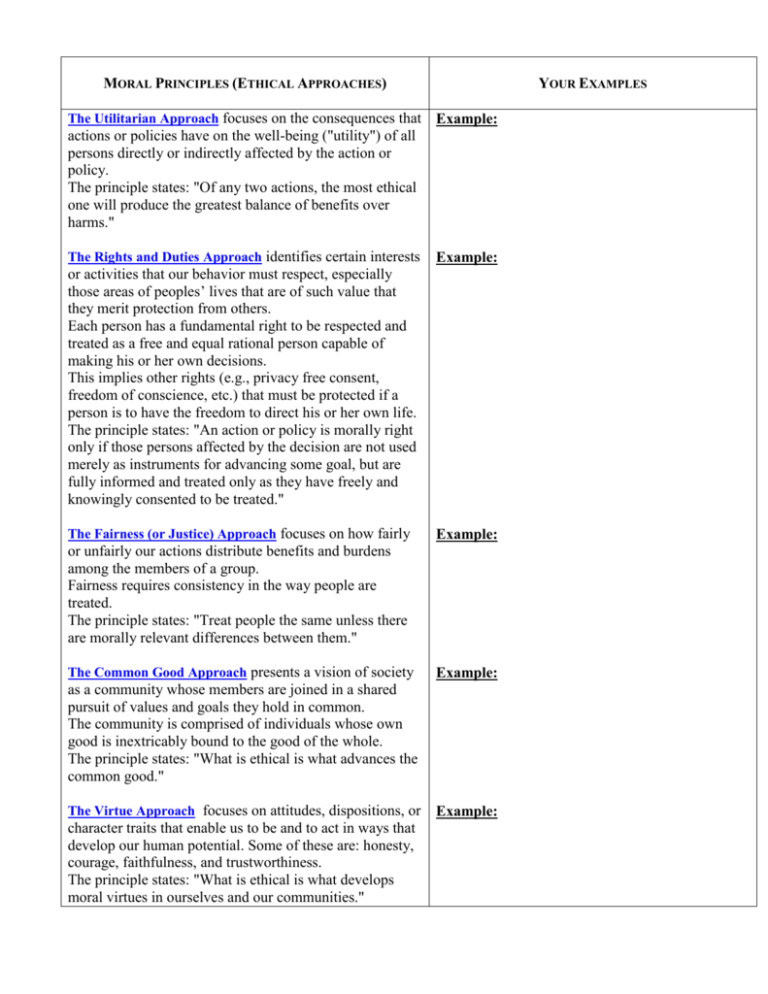
MORAL PRINCIPLES (ETHICAL APPROACHES) The Utilitarian Approach focuses on the consequences that YOUR EXAMPLES Example: actions or policies have on the well-being ("utility") of all persons directly or indirectly affected by the action or policy. The principle states: "Of any two actions, the most ethical one will produce the greatest balance of benefits over harms." The Rights and Duties Approach identifies certain interests Example: or activities that our behavior must respect, especially those areas of peoples’ lives that are of such value that they merit protection from others. Each person has a fundamental right to be respected and treated as a free and equal rational person capable of making his or her own decisions. This implies other rights (e.g., privacy free consent, freedom of conscience, etc.) that must be protected if a person is to have the freedom to direct his or her own life. The principle states: "An action or policy is morally right only if those persons affected by the decision are not used merely as instruments for advancing some goal, but are fully informed and treated only as they have freely and knowingly consented to be treated." The Fairness (or Justice) Approach focuses on how fairly Example: or unfairly our actions distribute benefits and burdens among the members of a group. Fairness requires consistency in the way people are treated. The principle states: "Treat people the same unless there are morally relevant differences between them." The Common Good Approach presents a vision of society Example: as a community whose members are joined in a shared pursuit of values and goals they hold in common. The community is comprised of individuals whose own good is inextricably bound to the good of the whole. The principle states: "What is ethical is what advances the common good." The Virtue Approach focuses on attitudes, dispositions, or character traits that enable us to be and to act in ways that develop our human potential. Some of these are: honesty, courage, faithfulness, and trustworthiness. The principle states: "What is ethical is what develops moral virtues in ourselves and our communities." Example:

